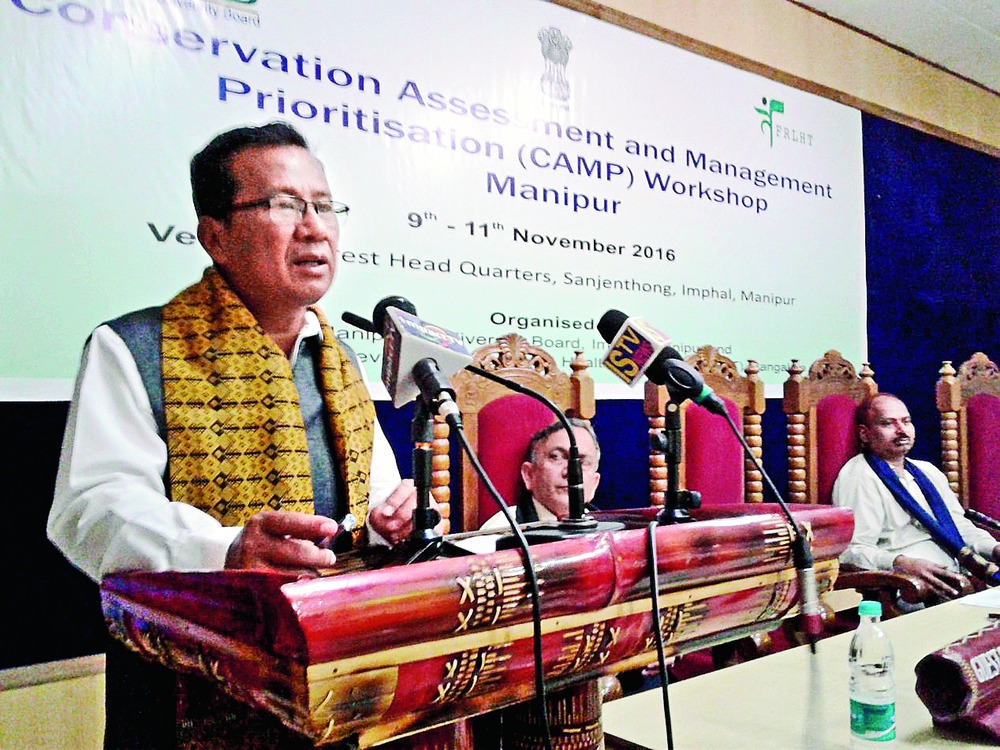
Imphal, Nov. 9: Manipur's abundant wealth of medicinal plants and fruits can be marketed as they have the potential to prevent cancer, diabetes and other diseases, said experts at a Conservation Assessment and Management Prioritisation workshop at the Manipur forest department headquarters here today.
The three-day workshop was organised by the Manipur Biodiversity Board in association with the Foundation for Revitalisation of Local Health Tradition (FRLHT), Bangalore.
The workshop discussed the importance of forest produce, conservation assessment and management prioritisation process, using the International Union for Conservation of Nature Red List of threatened species categories and criteria for the state.
Chief secretary O. Nabakishore said the use of herbal medicine in the state was unique. The traditional physicians of the state have been prescribing medicines comprising herbal extracts that can cure many diseases. "Like Ayurvedic medicine, Manipur has similar medicines produced from plants, fruits and roots. What is important is that we have to get the local herbal medicines tested by an accredited lab to find out its advantages and negative effects."
For instance, black rice, which helps people fight cancer and diabetes, is abundantly available in Manipur at Rs 60 per kg. A kilo of black rise costs Rs 600 in New Delhi.
The traditional shampoo, chinghi, produced from rice water and herbs, can also be sold outside the state. Its cost of production is negligible and is sold locally at Rs 25 per 500 ml.
"Local entrepreneurs and marketers need to be promoted to market these natural products," said the chief secretary.
Additional chief secretary W.L. Hansing said the state has a rich biodiversity consisting of medicinal plants, herbs and shrubs. However, a comprehensive scientific survey is necessary and the forest department and biodiversity board needed to take necessary measures, he added.
P.N. Prasad, the principal chief conservator of forest, said Manipur was well known because of the Siroy lily and sangai. "If we do not protect them, they will be extinct one day. Hence, biodiversity is an important issue in the state."
"Our life depends on forests. Every vegetable is grown in the hill forests of the state. But the people cut down trees and kill birds and animals resulting in the failure of horticulture and forestry. This should be strictly prohibited and people should be made aware of the importance of biodiversity," he said.
"In Tamenglong district, Amur falcons eat up all the insects. Hence, there is no need of pesticides or insecticides," he added. "Manipur's medicinal plants and forest products can be a source of livelihood. We need to appoint collectors of medicinal plants for export. Export of furniture and crafts can be promoted by providing transit permission."
In today's session, Abdul Kareem, the assistant director, FRLHT, Bangalore, talked on Species Enlisted Based on inputs from Resource Persons and Selection of Species for Assessment.











